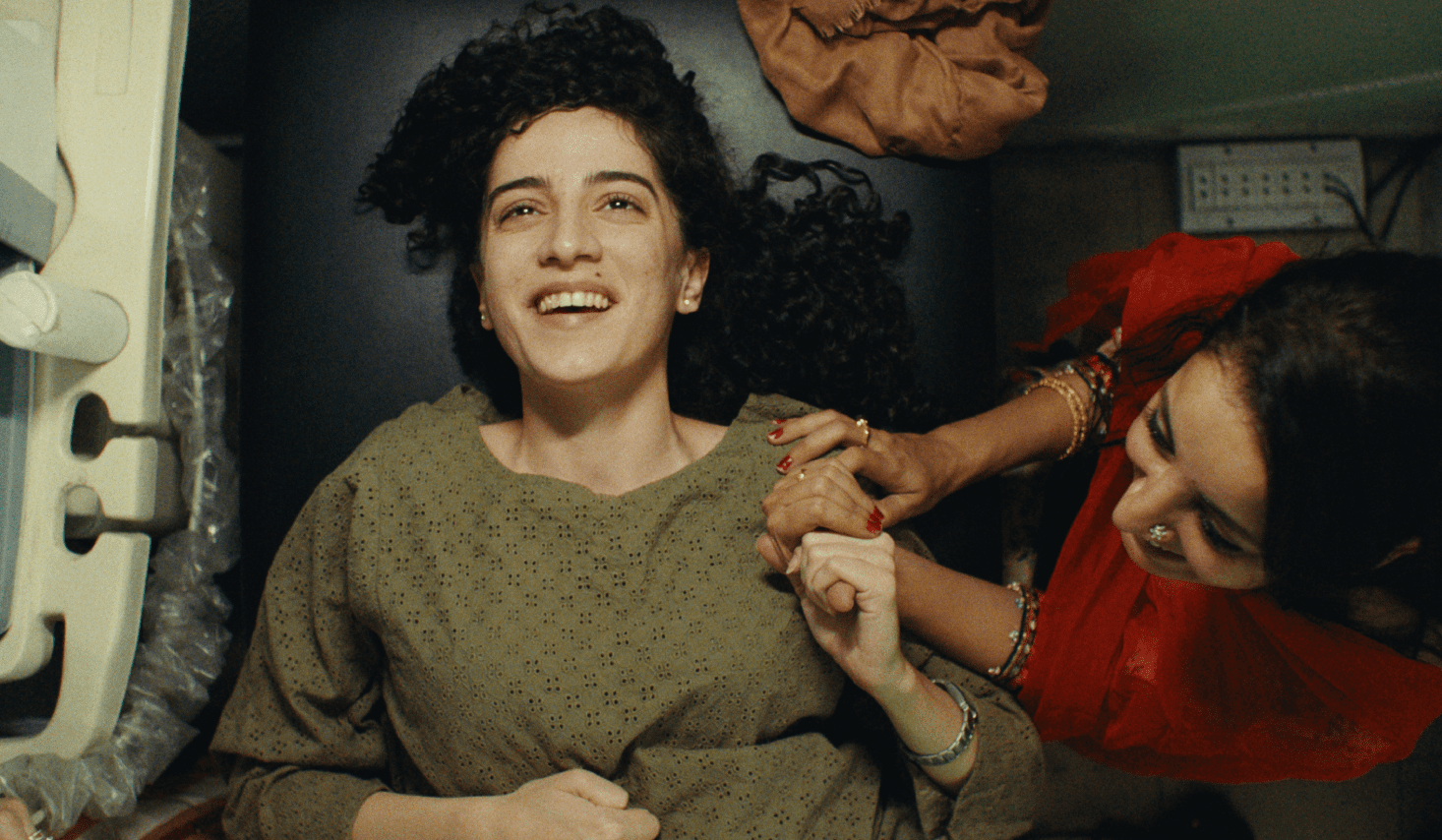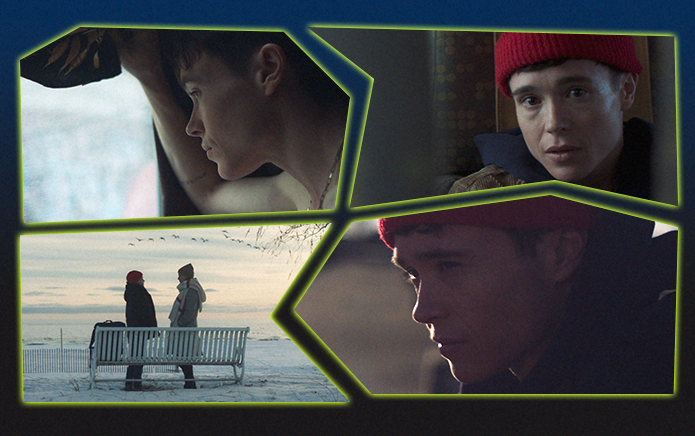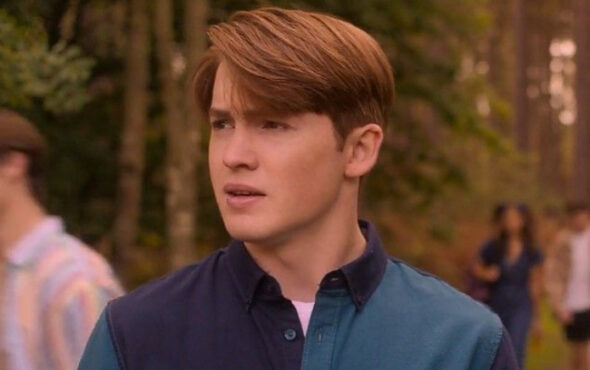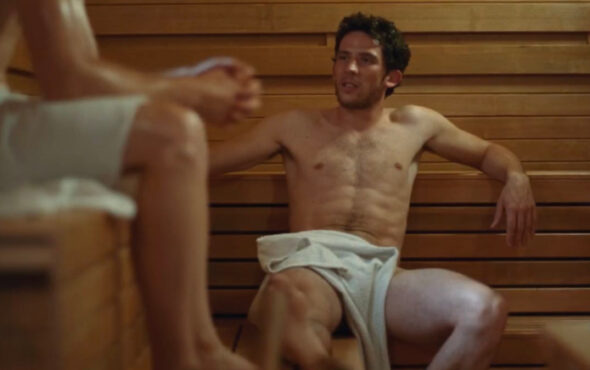
The independent film landscape is not an easy place to be, especially for productions slapped with the “foreign” category title. It’s an arduous task pushing out promo cycles and getting the right voices to back a project you and your team have spent months working on in the blistering heat. Then, imagine, your film gets banned a week before its nationwide rollout. Well, that’s exactly what happened to Saim Sadiq, the director of the acclaimed film, Joyland.
While Joyland has some hope of making it to wider audiences in Pakistan, the emotionally-packed film is making international rounds as a film to keep an eye on. With a zoomed in focus on an impossible love story, a family reckoning with its own conservatisms, and what it truly means to foster empathy for the people of Pakistan, Joyland is an unprecedented movie that does not hold back. GAY TIMES speaks to Saim Sadiq to find out more about the film’s layered characters, putting Pakistan in the spotlight, and why trans representation doesn’t always have to be didactic.
Joyland lends itself into a highly important cultural conversation about identity and how we see one another. For some people, Joyland may be the first time they’ve seen South Asian identity portrayed . What do you think audiences, particularly Western viewers, will take away from this film?
I don’t hope for a very specific takeaway from the film. Films are supposed to be more complex than that, as an experience. The takeaway isn’t ‘let’s not be mean to trans people’ because everybody knows that. You don’t need to make a film to tell that to anyone. You shouldn’t make your film just to give that sort of basic lesson especially when you bring intersectionality. I would like the film to foster our sense of empathy for people around us and for ourselves, which is very lacking these days.
Do you think Pakistan and wider audiences need a movie like Joyland right now?
I’m not going to prescribe my film as the antidote to things that are happening in the country; I get a little uncomfortable doing that. Having said that, this is a film that I don’t think they need right now. This film would have the same relevance, unfortunately, 20 years ago, 50 years ago. You could have told the same story 50 years from now because patriarchy is not something that was invented yesterday, it’s been there for centuries.
In India and Pakistan, a film that looks at gender identity and sexuality with an empathetic lens and puts a conservative family at the front at the centre of that narrative and it doesn’t sort of bully them into accepting liberal values but instead tries to understand them from their perspective. For me, that is what makes it perhaps an honest and more complex look at these issues and not superimposing the way these issues are spoken about in the west and taking them and superimposing them onto Pakistan and India because our societies are different, our family systems are different, our way of being is different. We have to formulate our own way of discussing these things, and that may or may not be the way that it’s being discussed in other parts of the world.
Joyland brings to life a powerful fictional story but falls on identities that are very real in today’s society. How did you navigate the way in which you would bring these characters to life?
There’s only one character that I really needed to step out of my frame of reference to engage with the community or with certain people too, which is Biba’s (Alina Khan) character. We did liaison with the Khwaja Sira society, which is a non-governmental organisation in Lahore that works for trans people. So, we had the trans community [involved] and then the biggest resource was Alina herself. I had been working with her for three years before we shot the film, so she was aware of everything and had given me a lot to put into the script. I did my research on that character.
At the same time, I didn’t want it to be a trans story, I knew that it wasn’t like a trans rights story. It wasn’t a film about the trans experience, it was certainly a film that had a trans person part of the ensemble. All the other characters are fictional but not fictional. I was lucky because I knew that I was interested in making a film that explored these characters and observed them and that’s why I was happy that the film has a very thin plot and not a lot happens. You’re just really watching [characters] exist. Nothing happens until the very end and by observing these people. For me, that was an interesting thing to give good observations.
There is an unevenness or an impossibility in the relationship between Haider and Biba. What inspired the direction of their relationship as characters?
The first idea of the film came to me as it was a tragedy. Initially, when I started writing, the core of this film was like a Shakespearean or Greek tragedy but set in Pakistan. So, for me, it was not that I started out thinking that ‘oh, they have to be doomed’. I did think of ways to give them a shot. But, the first idea of the relationship used to be different. I kept rewriting and in the big final draft […] the film sort of really came to the fore, and everyone was like now we know what we’re making. That germ of the relationship was actually the last thing that they had together. The last two scenes when she’s talking about her surgeries and then the break up, that came to me as an impossible love story. It’s physically not possible. It’s emotionally not possible and yet, they do love each other.
What are you most proud of in this movie?
I think I’m really proud of the whole third act of the film. The third act of the film feels very honest and very surprising to a lot of people, but for me, I always engage with it emotionally.
Alina Khan stars as Biba in this film. Outside of her transness, how did she help bring this film to life? It’s impossible to see the film without her. In terms of small things like dialect for example. It’s not just the transness. This is actor stuff, so trans people in Pakistan, particularly in Lahore, speak Punjabi, but they also have a different dialect and have their own words. You can do the research and you can teach an actor how to do that, but there’s no way they would be able to pick it up in that way. I didn’t need to worry about accent, body language, behaviour, or cultural authenticity. Instead, we got to work on emotional consequences like where she is vulnerable and why she is so abrasive. Understanding those nuances is something that she did so beautifully.
Malala Yousafzai has been involved in the creation of this film as an executive producer and has defended it as it was banned. How did she get involved in this project?
She met one of our other producers in Sweden and so she had heard about the Pakistani film. She just started a production company called Extracurricular. The producer, who was white, said you’re from Pakistan and we just produced a Pakistani film and she asked ‘which one? Joyland?’. She had heard of it because of the reception at Cannes. At the time, the only screening that had happened was at Cannes so we were like if Malala is asking you for a link, you send the link. She expressed interest that she wanted to help.
With independent films, a person of such weight and stature coming on board to sort of elevate the profile of the film and bring it a certain level of attention helps with distribution and helps with giving those films a higher profile for the awards. It was a very quick and harmonious marriage. She’s very normal and chilled out and calls me randomly sometimes and being like to congratulate me when we’ve got the shortlist and I was like ‘what the fuck – my phone says Malala Yousafzai a calling me at 2am’ because I was in Pakistan. It’s surreal.
How did you feel about making history by getting shortlisted for the Oscars?
There was a lot of conversation about the ban and the reasons but also because we were gonna get disqualified. We’re not a big film but with whatever resources that we did have, we were campaigning and trying for the film to have its best shot in the sun for the shortlist. So, I felt relieved, honestly. I felt proud of the fact that Pakistan’s name was there. I’m not a very patriotic person, but, at that moment, I might say I did feel a little cutely patriotic. It’s nice. How often do you get to see Pakistan’s name on a list that’s not a bad list or a red list or a travel ban list or things like that? It’s usually bad, so enjoy it.
Last of all, what do you think makes Joyland such a powerful movie?
I’m really going to sound like a douchebag praising my own film. Honestly, I don’t know. I don’t want to know because we were all just trying to be honest and I hope that doesn’t sound like a load of crap or that’s me bullshitting and saying something that sounds nice, but it’s really just true. We were all concerned about being honest, right down to my costume girl saying [an actor] will not be wearing a dupatta in a scene if she’s in the kitchen. It was never about it that it doesn’t look nice, but that it’s not something that she would be doing. My style has had this surety about every character.
Everybody was trying to make the most engaging, stimulating, and honest version of the story and be truthful to these characters. You can write a nice story and take a nice shot and there are many great actors who can have great performances, but [it’s about] striving for honesty in those moments, or to keep the honesty alive. It’s the only collaborative art form that there is. It’s not a painting that I made. It’s a lot of other people and when a lot of other people come together, you have to believe in a certain level of energy that exists between those people that come together to make that film because there’s not a single artist.
Watch the official trailer for Joyland below.



